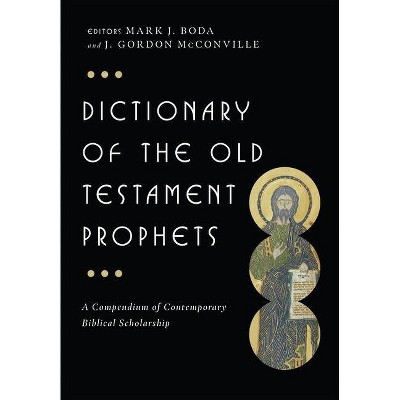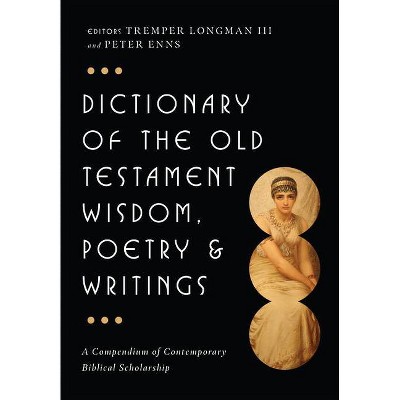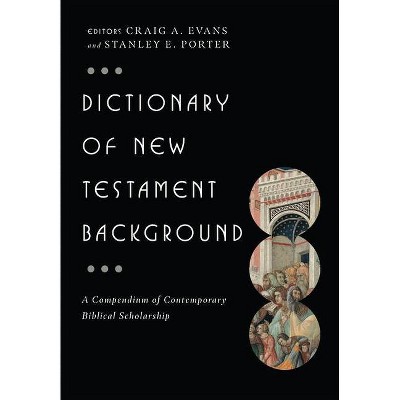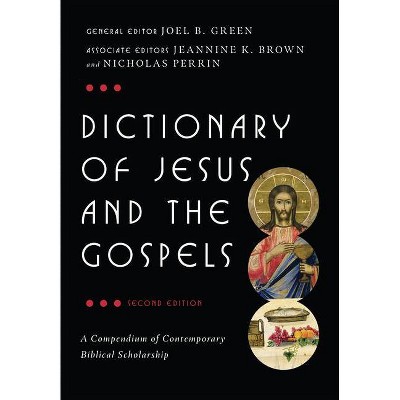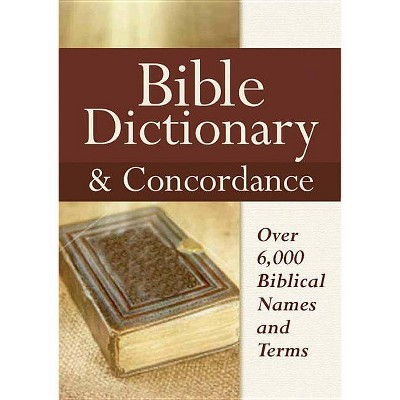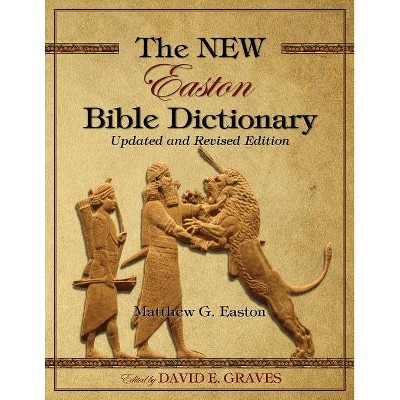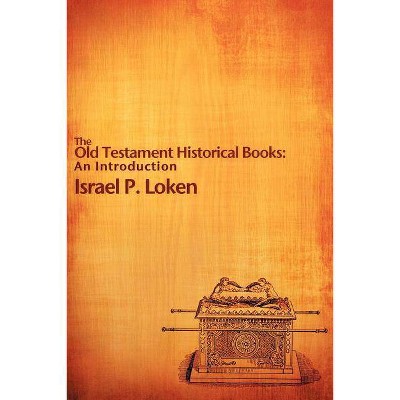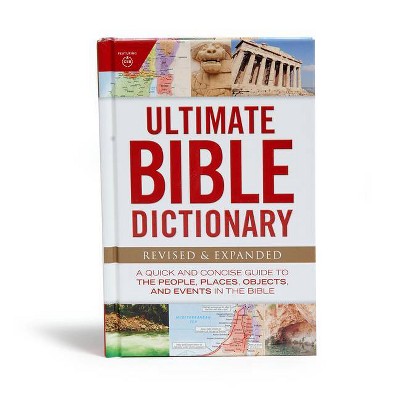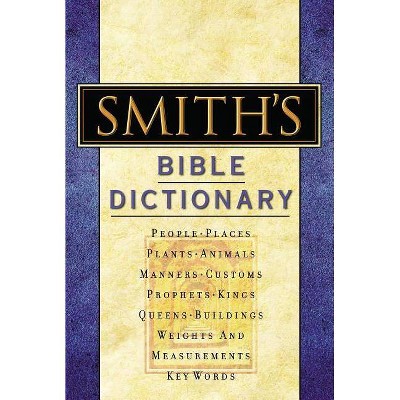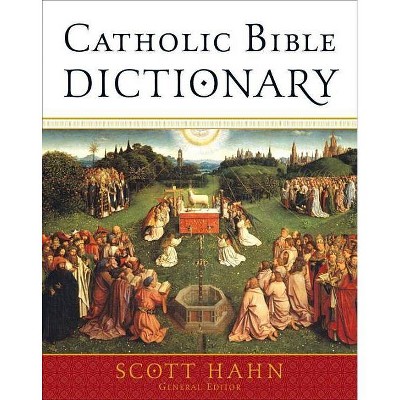Dictionary of the Old Testament: Historical Books - (IVP Bible Dictionary) by Bill T Arnold & H G M Williamson (Hardcover)
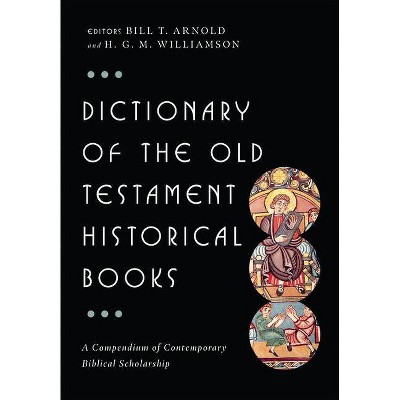
Similar Products
Products of same category from the store
AllProduct info
<p/><br></br><p><b> About the Book </b></p></br></br><p>Editors Bill T. Arnold and Hugh G. M. Williamson present more than 160 in-depth articles on the essential historical, literary, theological, interpretive and background topics for studying the historical books of the Old Testament (Joshua, Judges, 1-2 Samuel, 1-2 Kings, 1-2 Chronicles, Ezra, Nehemiah).</p><p/><br></br><p><b> Book Synopsis </b></p></br></br><p>Edited by Bill T. Arnold and Hugh G. M. Williamson, the <em>Dictionary of the Old Testament: Historical Books</em> is the second volume in IVP's Old Testament dictionary series. This volume picks up where the <em>Dictionary of the Old Testament: Pentateuch</em> left off--with Joshua and Israel poised to enter the land--and carries us through the postexilic period. Following in the tradition of the four award-winning IVP dictionaries focused on the New Testament, this encyclopedic work is characterized by in-depth articles focused on key topics, many of them written by noted experts. The history of Israel forms the skeletal structure of the Old Testament. Understanding this history and the biblical books that trace it is essential to comprehending the Bible. The <em>Dictionary of the Old Testament: Historical Books</em> is the only reference book focused exclusively on these biblical books and the history of Israel. The dictionary presents articles on numerous historical topics as well as major articles focused on the books of Joshua, Judges, Samuel, Kings, Chronicles, Ezra and Nehemiah. Other articles focus on the Deuteronomistic History as well as the Chronicler's History, the narrative art of Israel's historians, innerbiblical exegesis, text and textual criticism, and the emergence of these books as canonical. One feature is a series of eight consecutive articles on the periods of Israel's history from the settlement to postexilic period, which form a condensed history of Israel within the <em>DOTHB.</em> Syro-Palestinian archaeology is surveyed in one article, while significant archaeological sites receive focused treatment, usually under the names of biblical cities and towns such as Jerusalem and Samaria, Shiloh and Shechem, Dan and Beersheba. Other articles delve into the histories and cultures of the great neighboring empires--Egypt, Assyria, Babylonia and Persia--as well as lesser peoples, such as the Ammonites, Edomites, Moabites, Philistines and Phoenicians. In addition there are articles on architecture, Solomon's temple, agriculture and animal husbandry, roads and highways, trade and travel, and water and water systems. The languages of Hebrew and Aramaic, as well as linguistics, each receive careful treatment, as well as the role of scribes and their schools, and writing and literacy in ancient Israel and its environs. The <em>DOTHB</em> also canvases the full range of relevant extrabiblical written evidence, with five articles focused on the various non-Israelite written sources as well as articles on Hebrew inscriptions and ancient Near Eastern iconography. Articles on interpretive methods, on hermeneutics and on preaching the Historical Books will assist students and communicators in understanding how this biblical literature has been studied and interpreted, and its proper use in preaching. In the same vein, theological topics such as God, prayer, faith, forgiveness and righteousness receive separate treatment. The history of Israel has long been contested territory, but never more so than today. Much like the quest of the historical Jesus, a quest of the historical Israel is underway. At the heart of the quest to understand the history of Israel and the Old Testament's Historical Books is the struggle to come to terms with the conventions of ancient historiography. How did these writers conceive of their task and to whom were they writing? Clearly the Old Testament historians did not go about their task as we would today. The divine word was incarnated in ancient culture. Rather than being a dictionary of quick answers and easy resolutions readily provided, the <em>DOTHB</em> seeks to set out the evidence and arguments, allowing a range of informed opinion to enrich the conversation. In this way it is hoped that the <em>DOTHB</em> will not only inform its readers, but draw them into the debate and equip them to examine the evidence for themselves.</p><p/><br></br><p><b> Review Quotes </b></p></br></br><br><p>The publisher of <em>DOTHB, </em> the latest volume in the comprehensive series on the Old and New Testaments and their backgrounds, is to be commended on this magnificent achievement. The editors have distinguished and well-deserved reputations in biblical studies, while the authors, some better known than others, are uniformly well-qualified and in the forefront of our field. The list of contributors and articles is comprehensive, if not exhaustive, and those read by the present writer, across the spectrum of history, archaeology and theology, are first-rate both in terms of fair-minded scholarship and reader-friendly literary quality. Authors and editors alike are to be congratulated for a stellar accomplishment. As a person with some experience in the reference work business, I can recommend the new arrival with utmost enthusiasm.</p>--David Noel Freedman, Editor-in-Chief, The Anchor Bible Project<br><br><p>With entries ranging from 'agriculture' to 'Zion traditions, ' <em>DOTHB</em> attempts a 'total context' treatment of the Historical Books of the Old Testament. Since these books are concerned with much more than 'history, ' this approach is absolutely right, and is admirably carried through. I am particularly pleased to see the level of awareness of recent developments in biblical and archaeological study in many of the articles. This is a very valuable addition to the IVP dictionary series.</p>--Robert P. Gordon, Regius Professor of Hebrew, University of Cambridge<br><br><p><em>DOTHB</em> should be in the library of every Bible student and teacher, as well as every institution engaged in biblical education. IVP's series of dictionaries stands as a landmark accomplishment for biblical scholarship.</p>--William D. Barrick, The Master's Seminary Journal, Spring 2008<br><br><p>A complement to the Dictionary on the Pentateuch and an essential resource for all serious students of the OT. This Dictionary along with its companion volume will reward all who want to explore the world of the OT in greater depth and be better informed for teaching others.</p>--Ian Birch, Connect (Baptist Union of Scotland), December 2008/January 2009<br><br><p>Contains fairly even and well-balanced entries that provide a panoramic view of the present landscape in this segment of scholarly research on the historical books, the history of Israel, and relevant archaeological evidence. The contributors to the dictionary, however, do not merely present but also evaluate data. . . . This affordable reference work can benefit all who desire to gain something from its clear presentation of the material, whether undergraduates, graduate students, or scholars.</p>--Steven J. Schweitzer, The Catholic Biblical Quarterly 69, 2007<br><br><p>The quality of the articles is excellent. The articles were accessible, succinct and fair. This is a very helpful resource for students of the Bible at all levels, especially to those who are interested in historical books of the Old Testament, history and culture of ancient Israel and ancient Near East, and issues involved in reconstructing what happened in the past. I highly recommend it.</p>--Uriah Y. Kim, Reviews in Religion and Theology 14, no. 2, 2007<br><br><p>This reference work is intended for an audience spanning the gamut from students and pastors to professors and researchers. . . . This volume is highly recommended.</p>--Beth M. Sheppard, American Reference Books Annual (2006 Edition), volume 37<br><br><p>This volume provides up-to-date scholarship not only on all the historical books but also world studies relevant to the material covered. An excellent companion for study of a section of the Old Testament canon often neglected.</p>--Arie C. Leder for Calvin Theological Journal, November 2007<br>
Price History
Cheapest price in the interval: 44.49 on October 22, 2021
Most expensive price in the interval: 46.99 on March 10, 2021
Price Archive shows prices from various stores, lets you see history and find the cheapest. There is no actual sale on the website. For all support, inquiry and suggestion messagescommunication@pricearchive.us
